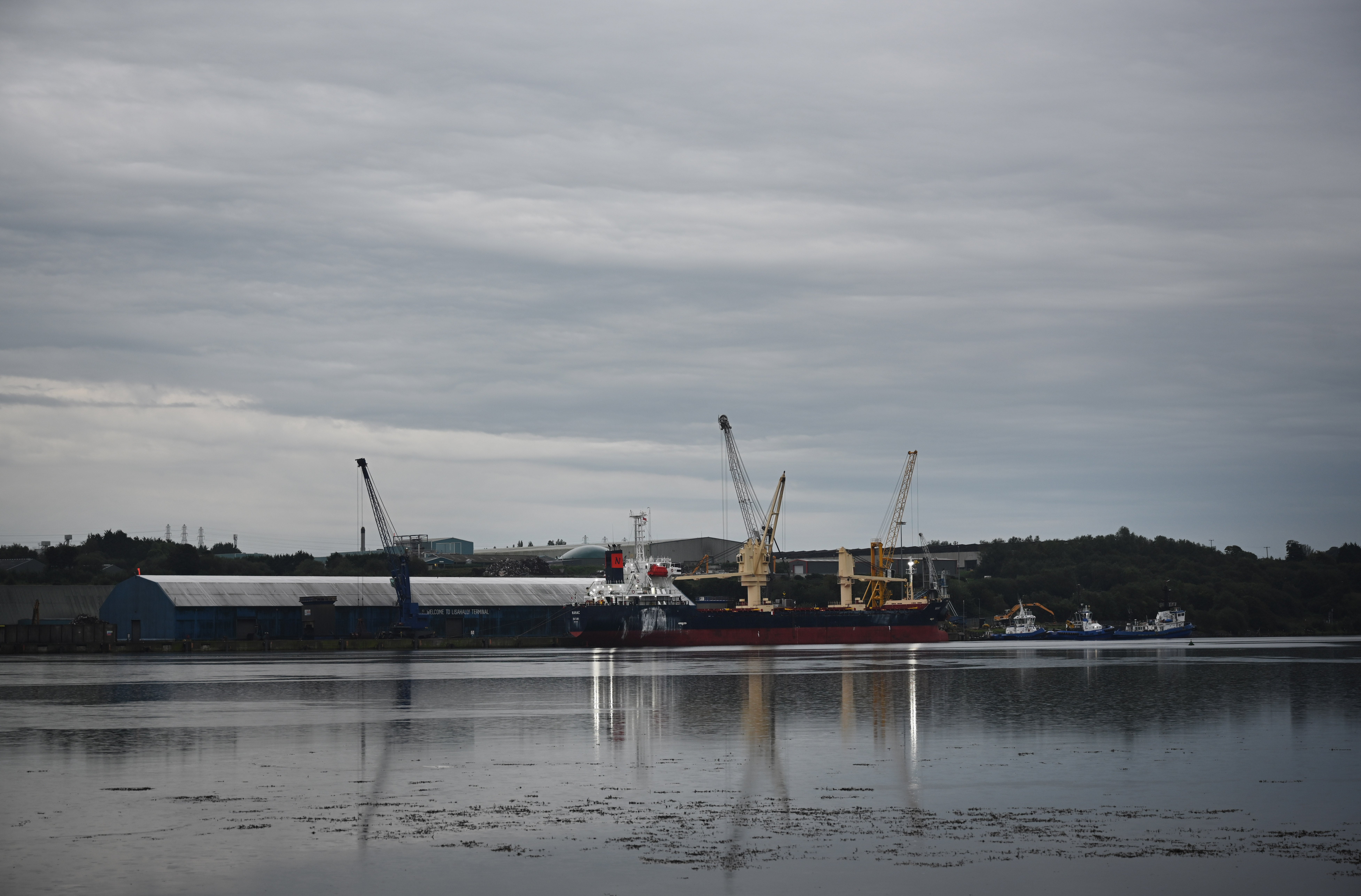Brexit: Red alert as officials admit Northern Irish ports will not be ready for New Year deadline
Average supermarket truck ‘will need 400 certifications’ to enter from British mainland

New Brexit border infrastructure at Northern Irish ports has been placed on “status red” because it will not be ready for the 31 December deadline when the UK’s transition out of the EU ends.
The checking facilities for goods arriving from Great Britain is required under the terms of the withdrawal agreement reached by Boris Johnson with the EU last year, which effectively created a “border down the Irish Sea” between Northern Ireland and the British mainland.
But the civil servant in charge of implementing the project told the Northern Ireland Assembly at Stormont that delays in procurement, planning and IT meant that “not everything will be in place” in time.
Border staff will be forced to use old buildings and a paper-based checking system in order to meet the additional regulatory checks required from 1 January under the withdrawal agreement, said Denis McMahon, the permanent secretary of Northern Ireland’s Department of Agriculture, Environment and Rural Affairs (DAERA).
Mr McMahon warned that the average supermarket lorry coming from the British mainland will require 400 separate certifications to enter Northern Ireland.
Unless the EU/UK Joint Committee, which meets in Brussels next week, reaches an agreement to minimise checks, “we will not be able to deliver the level of frictionless trade that we have today”, he told the Assembly’s scrutiny committee.
Mr McMahon said he and his colleagues had been left in an “impossible position” as they worked on a project that was openly opposed by DUP agriculture minister Edwin Poots.
He told the committee: “My message to you today is, despite monumental efforts by the team, not everything will be place by the 1st of January 2021.”
DAERA was legally obliged to introduce the new SPS (sanitary and phytosanitary) checking facilities and would be acting unlawfully if they did not proceed with the work, said Mr McMahon.
“We are caught in an impossible position and the impossible position we’re caught in is that we do work to ministers,” he said. I absolutely believe in the democratic principle of working to ministers, it’s not just something I do as a day job, I absolutely believe in that,” he said.
“However, I am also absolutely required to comply with the law and what we found is because we have been put in an impossible situation as a result of the wider politics around this we find ourselves having to navigate our way through this process.
“It may not look pretty but we have been very open and very honest about where we’ve been.”
Mr McMahon said lack of clarity on what checks were required, due to the ongoing absence of agreement between the EU and UK on the issue, was severely hampering their efforts.
He told committee members the project had now been given a red status, meaning it could not be delivered as planned within deadline.
On Thursday, Mr McMahon said officials did not know what size of facilities were needed, as the level of checking requirements had not been agreed by the joint EU/UK Joint Committee on the operation of the Northern Ireland Protocol.
Under the protocol, which is contained in the Brexit Withdrawal Agreement, Northern Ireland will remain in the EU Single Market for goods when the transition period ends.
That will required additional regulatory checks for animal-based food products entering Northern Ireland from Great Britain.
Mr McMahon said it was crucial that the committee was able to agree to minimise the checks required.
He said if there was no agreement on minimisation the average supermarket lorry coming from Great Britain would require 400 separate certifications to enter Northern Ireland.
“In that context we can implement what we like but without help from the UK and the EU to simplify the processes involved we will not be able to deliver the level of frictionless trade we have today,” he added.
In response to Mr McMahon’s comments, a Downing Street spokesman said: “We have been clear that we continue to work with the EU in terms of the Joint Committee and the next meeting of that is in Brussels next week, when the Chancellor of the Duchy of Lancaster (Michael Gove) will represent the UK.
“We will continue to work with stakeholders and others and work through the Joint Committee. We are working closely with businesses to ensure that everyone is ready for the end of the transition period.”
Join our commenting forum
Join thought-provoking conversations, follow other Independent readers and see their replies
Comments
Bookmark popover
Removed from bookmarks